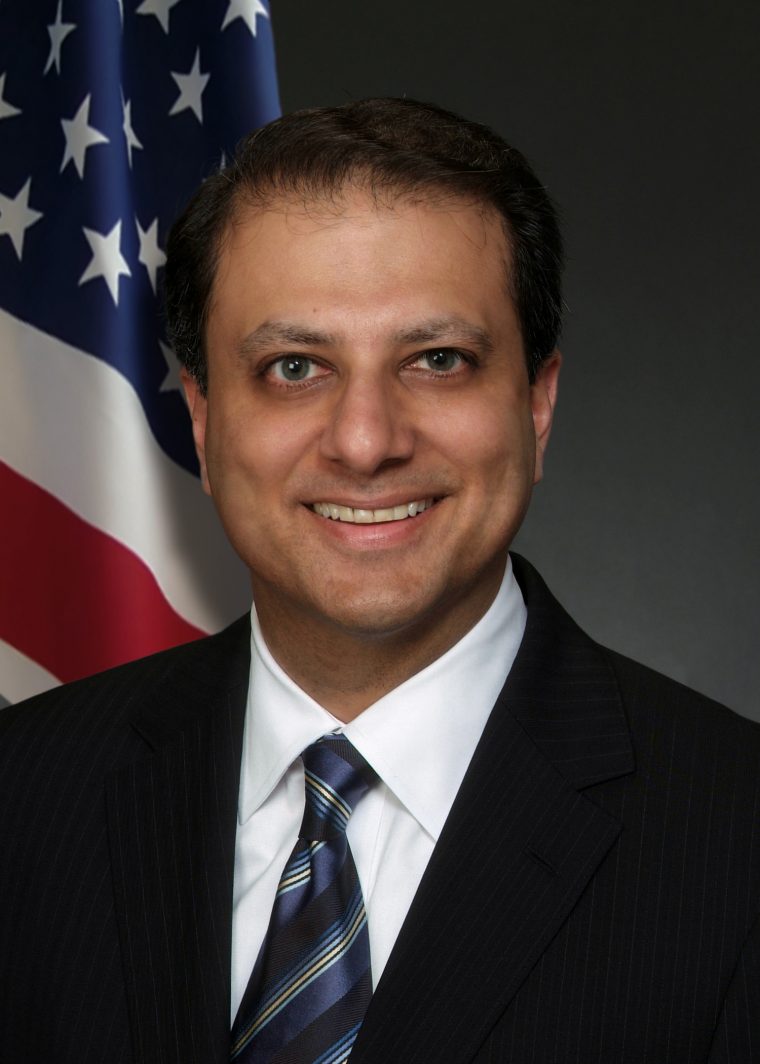Scene
‘How discretion is exercised’: Preet Bharara talks rethinking the role of the prosecutor
Around 75 students braved the hail and ice to watch former federal prosecutor Preet Bharara speak for Student Union’s Trending Topics Speakers series Wednesday, Jan. 22. Bharara spent eight years as Attorney General for the Southern District of New York and gained a reputation for rooting out public corruption and Wall Street misconduct.
 Photo courtesy of Preet Bharara
Photo courtesy of Preet Bharara Student Life caught up with Bharara after the event on the way to his Uber to talk about prosecutorial power and how to imbibe wisdom from your professors.
The interview has been lightly edited for clarity.
Student Life: A lot of the talk about criminal justice reform has been about prosecutors, and you obviously spent some time as a prosecutor. I was wondering if you think prosecutors have too much power in the criminal justice system.
Preet Bharara: I think prosecutors have a lot of power. I don’t think prosecutors need more power. And the key is to teach prosecutors, and also judges, how to exercise their discretion better. You need leaders of institutions, including at the Justice Department and DA offices, to give discretion to prosecutors, so that in appropriate cases, they can decide to be more lenient than they might otherwise be. In cases in particular where there’s no history of violence or prior record of crime, I think we should be more flexible in how we deal with certain kinds of low level crime. Yeah, so I think there’s a role for everyone to rethink how you go about prosecuting and how discretion is exercised.
SL: I was watching the recent Central Park Five Ava DuVernay series. And that was a good example of the win-at-all-costs mentality that may be prevalent in a lot of prosecutors today. How do you get rid of those incentives where it’s just the goal of prosecutors to win?
PB: Part of it is, you know, you have good rules and you have good training. The other is, like it is with any institution, whether you’re talking about a company or school or a church, you have to have a good culture in place. And you need a culture in which prosecutors understand their job is not to win. Their job is not to convict. Their job is to do the right thing. Their job is to do justice. And sometimes that means pursuing a case. Sometimes that means unraveling your case if the evidence shows you it should be unraveled. And the problem is, and I write about this in my book, people have a certain kind of confirmation bias. And that’s true in all sorts of professions, including in law enforcement; once they made a decision one way, they never want to reconsider it. And they stand by it too strongly…. And that was famous in Central Part Five, where a district attorney’s office wrongly charged a number of people with a homicide they had not committed. And part of the reason that injustice happened was people didn’t want to reconsider. And once you made a decision, people never want to undo their decisions. And that’s not a good mentality. So always be questioning what you’ve done. And question what other people have done.
SL: What’s the thing you’re most proud of from your career as a prosecutor?
PB: I don’t really think of that as a function of any particular case or matter. I think the most important thing is that you leave the institution as well [as] or better than you found it. And so if you maintain the same ideals of excellence, integrity, moral, then you can be proud about it. And I think that’s true. It’s very hard to pick a specific case, because different cases have different impacts for different reasons.
SL: What would be your advice for your 20-year-old self?
PB: Make relationships with mentors, get to know your professors, go to office hours, learn from them. I didn’t do that. I thought you go read your readings, you’ve studied for the tests, you get good grades, and that’s enough in life, and it’s not. There’s a lot that I lost. I mean, I ended up fine, ultimately. But you lose a lot if you don’t engage people who are wiser than you.
